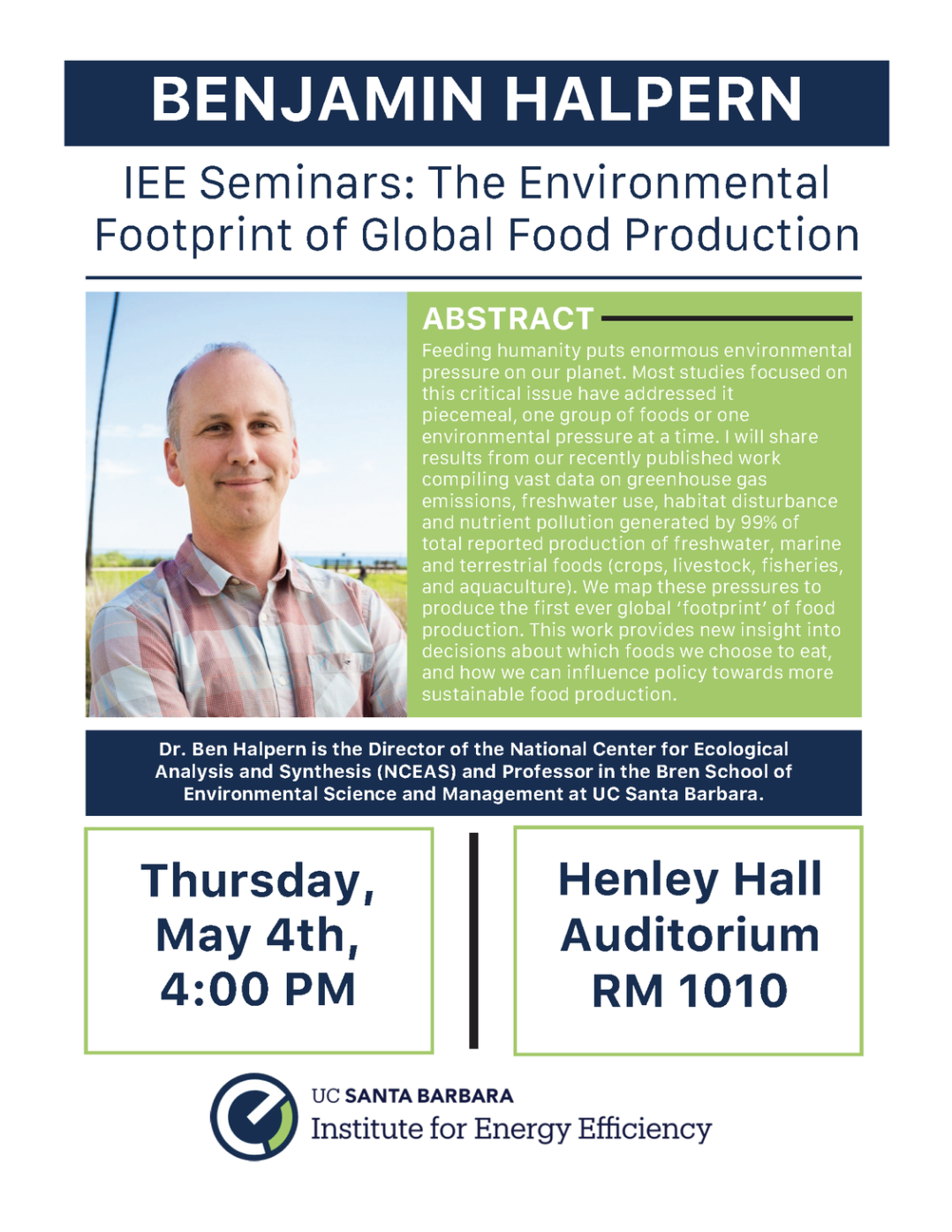
Abstract
Feeding humanity puts enormous environmental pressure on our planet. Most studies focused on this critical issue have addressed it piecemeal, one group of foods or one environmental pressure at a time. I will share results from our recently published work compiling vast data on greenhouse gas emissions, freshwater use, habitat disturbance and nutrient pollution generated by 99% of total reported production of freshwater, marine and terrestrial foods (crops, livestock, fisheries, and aquaculture). We map these pressures to produce the first ever global ‘footprint’ of food production. This work provides new insight into decisions about which foods we choose to eat, and how we can influence policy towards more sustainable food production.
Biography
Dr. Ben Halpern is the Director of the National Center for Ecological Analysis and Synthesis (NCEAS) and Professor in the Bren School of Environmental Science and Management at UC Santa Barbara. He received his Ph.D. in marine ecology in 2003 from UC Santa Barbara and then was a post-doctoral fellow and Research Associate at NCEAS for the following decade until joining the faculty at the Bren School. In the past 20 years Dr. Halpern has published over 280 peer-reviewed articles and was named one of the World’s Most Influential Scientific Minds by Thompson-Reuters. He received the A.G Huntsman Award for Excellence in Marine Science by the Royal Society of Canada, the Peter Benchley Ocean Award for Excellence in Science, and the Ocean Award in Science, and is a Fellow of both the California Academy of Sciences and the Ecological Society of America. Dr. Halpern’s research leverages environmental data science and synthesis to address a wide range of topics centered on the many ways that human activities are impacting ocean ecosystems and species, and the consequences of those impacts on the benefits we receive in return.